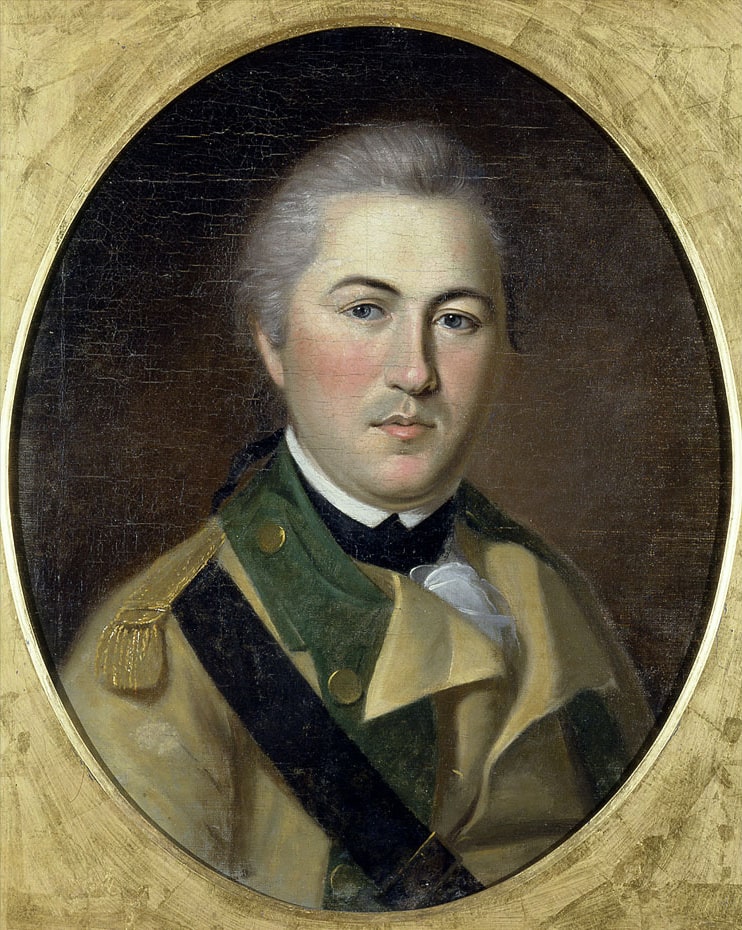Contents

Contents
Quick facts
- Born: 29 January 1756 at Leesylvania, the family plantation near Dumfries, Virginia.
- Henry Lee III, also known as “Light-Horse Harry”, was an American Patriot, politician, and cavalry officer in the Continental Army during the American Revolutionary War.
- He gained fame for his exceptional horsemanship and daring cavalry raids, which played a significant role in several key battles.
- Lee’s most notable military engagement was the Battle of Paulus Hook in New Jersey, where he demonstrated remarkable leadership and tactical skill.
- He was a close confidant of George Washington and later delivered the famous eulogy for the former president, coining the phrase “first in war, first in peace, and first in the hearts of his countrymen.”
- After the war, Lee served as the Governor of Virginia and as a member of the United States Congress.
- He was the father of Robert E. Lee, the famous Confederate general during the American Civil War.
- Despite his military and political achievements, Lee faced financial difficulties and personal challenges later in life.
- Died: 25 March 1818 at Dungeness, on Cumberland Island, Georgia.
- Buried in the family crypt at Lee Chapel, Washington & Lee University, in Lexington, Virginia.
Biography
Henry Lee III, Continental Army officer, was born near Dumfries, Virginia, in 1756. His father was first cousin to the Lees of Stratford Hall, including Richard Henry, Francis Lightfoot, William, and Arthur. He graduated from Princeton in 1773 and had an eye on a legal career, but soon afterwards, on the outbreak of the War of Independence, he became an officer in the Continental Army.
He served with great distinction under General Washington, and in 1778 was promoted major and given the command of a small irregular corps, with which he won a great reputation as a leader of light troops. His services on the outpost line of the army earned for him the nickname Light Horse Harry.
His greatest exploit was the brilliant surprise against the British fort at Paulus Hook, New Jersey, on 19 August 1779 — for this feat he received a gold medal, a reward given to no other officer below general’s rank in the whole war.
He was promoted lieutenant colonel 1780, and sent with a picked corps of dragoons to the southern theater of war. Here he rendered invaluable services in victory and defeat, notably at Guilford Court House, Camden and Eutaw Springs. He was present for the surrender of Cornwallis at Yorktown, and afterwards left the army owing to ill-health.
From 1786 to 1788 he was a delegate to the Congress of the Confederation.
In the Virginia convention he favored adoption of the Federal constitution. From 1789 to 1791 he served in the Virginia General Assembly, and from 1791 to 1794 was Governor. In 1794 Washington sent him to help in the suppression of the Whiskey Rebellion
in western Pennsylvania. A new county of Virginia was named after him during his governorship. He was a major general in 1798 – 1800. From 1799 to 1801 he served in Congress.
Soon after the War of 1812 broke out, Lee, while helping to resist the attack of a mob on his friend, A. C. Hanson — editor in Baltimore of The Federal Republican (which had opposed the war) — received grave injuries, from which he never recovered. He also served in debtors’ prison for a year, as a result of years of speculation and bad investments.
Lee was the father of Confederate General Robert E. Lee. On the death of Washington in 1799, he delivered the Funeral Oration, which contains the famous phrase “first in war, first in peace, and first in the hearts of his countrymen.” He died at the house of General Nathanael Greene (who had died in 1786) in Cumberland Island, Georgia, in 1818.

